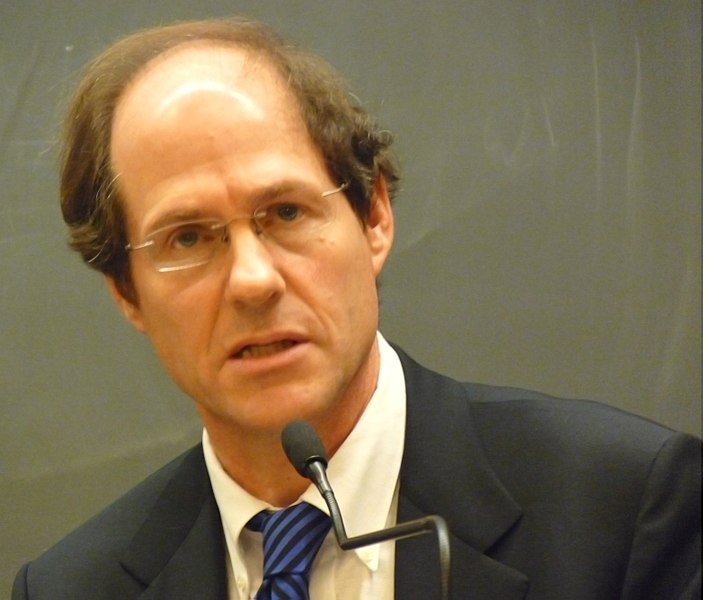
While Sunstein Nomination Is Delayed, Regulatory Reform Waits
7/29/2009

Sen. John Cornyn (R-TX) has placed a hold on the nomination of Cass Sunstein, President Obama's pick to head the Office of Information and Regulatory Affairs (OIRA). News of Cornyn's hold emerged July 22 – one week after Sen. Saxby Chambliss (R-GA) lifted his hold on the nomination.
Cornyn's hold all but eliminates the likelihood that Sunstein's nomination will come up for a vote before the Senate breaks on Aug. 7 for summer recess. The Senate plans to return Sept. 8.
A spokesman for Cornyn told Fox News that the senator is concerned about Sunstein's views on animal rights. Sunstein has written that animals should enjoy meaningful legal rights, including the right to sue.
OIRA is a small but powerful White House office responsible for overseeing federal agencies' regulatory activity. The office reviews and sometimes edits the text of regulations, and it approves government forms and surveys that require the public to divulge information.
Obama nominated Sunstein April 20. Sunstein is a distinguished academic who served on the University of Chicago Law School faculty with Obama and then moved to Harvard Law School. He is currently serving as a special adviser to Peter Orszag, director of the White House Office of Management and Budget (OMB).
During his career as a legal scholar, Sunstein authored several provocative articles and books on a variety of subjects, including animal rights. In his most recent book, On Rumors: How Falsehoods Spread, Why We Believe Them, What Can Be Done, scheduled for release in September, Sunstein examines the impact of salacious rumors in the Internet age and suggests that current libel standards may not be strict enough, according to advance copies. The book has stirred controversy among free speech advocates. This is but one example of the controversial subjects Sunstein has addressed in his academic career.
Republican senators beyond Cornyn and Chambliss, including Sens. Susan Collins (R-ME) and Pat Roberts (R-KS), expressed concern about Sunstein's views on animal rights. Both Roberts and Collins said their concerns were allayed after hearing directly from Sunstein. Chambliss lifted his hold after an in-person meeting with Sunstein to discuss the nominee's views on animal rights and the Second Amendment. At Chambliss’ request, Sunstein has also met with various stakeholders concerned about his views on animal rights.
The animal rights flap has delayed not only Sunstein's nomination, but also progress on meaningful efforts to reform the federal regulatory process. If confirmed, Sunstein will likely shape the way the Obama administration writes and enforces new rules.
President Obama pledged to issue a new executive order to govern the process. On Jan. 30, Obama issued a memo asking federal agency personnel to recommend improvements. Orszag was charged with leading the effort, and Obama set a deadline of 100 days.
On Feb. 26, Orszag commenced a public comment period, a highly unusual but welcomed approach to the development of an executive order. In response, 183 individuals and organizations commented on the current state of the regulatory process and suggested reforms. (Click here for coverage of the comments.)
Since then, the administration has not provided many updates on the nature of the recommendations or the development of the new executive order. The 100-day deadline passed in May. "The director has submitted a set of recommendations to the president, in compliance with the president's memorandum and within the 100-day timeframe," an OMB official told The Hill. "As decisions based on those recommendations are approved, they will be made public."
Two major aspects of the regulatory process likely to be covered by the executive order are regulatory review as managed by OIRA and cost-benefit analysis. Currently, agencies must submit to OIRA any rule that is deemed significant. OIRA then comments or edits the rule and circulates it among other federal agencies. Critics, including OMB Watch, say this process increases the potential for political interference in regulatory decisions and delays the completion of new standards needed to protect the public.
Cost-benefit analysis is an equally controversial issue. Proponents say it is a logical way for regulators to determine whether a new policy is worth pursuing. However, critics point out that the benefits of regulation, such as lives saved or injuries avoided, are difficult to estimate and impossible to put a price on, thus making cost-benefit analysis biased against regulation.
Sunstein has written both on OIRA's role in the regulatory process and on cost-benefit analysis. He believes that OIRA can play a positive role and supports the use of cost-benefit analysis.
Those views have not endeared him to some public interest groups, including the Center for Progressive Reform, a think tank of law professors advocating for a regulatory process that better protects the public. Meanwhile, The Wall Street Journal editorial board and some conservative groups are satisfied with Sunstein.
It remains unclear whether Sunstein would attempt to further advance his academic writings as OIRA administrator. He pledged during his confirmation hearing before the Senate Homeland Security and Governmental Affairs Committee to make statutory intent the preeminent criterion for regulatory decision making at OIRA. He also said that cost-benefit analysis should not be used as an "arithmetic straitjacket" to constrain regulation.
Sunstein avoided opportunities to provide more specificity on his plans during the hearing. For example, when asked, "Do you believe that OIRA should be an activist office, steering regulation in particular directions?" Sunstein sidestepped the question, writing, "I believe that OIRA has a role to play in promoting compliance with the law and with the President's commitments and priorities – and that it can do so in a manner fully consistent with its mission." Sunstein was approved by the panel with only one dissenting vote.
Image in teaser from Wikimedia Commons, uploaded by Matthew W. Hutchins, used under a Creative Commons license


